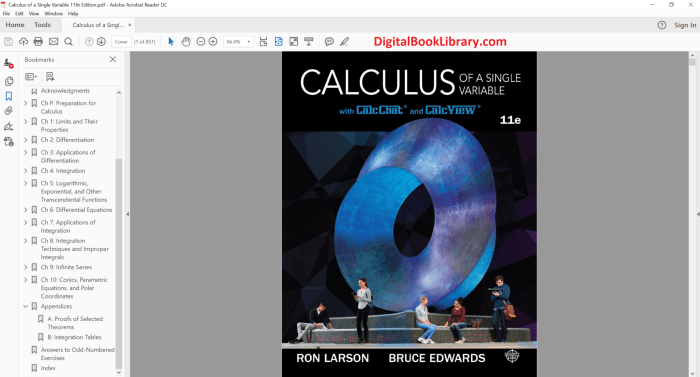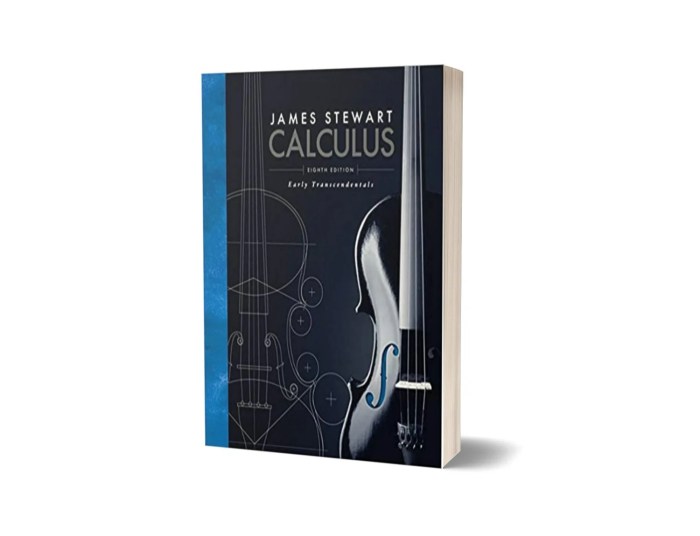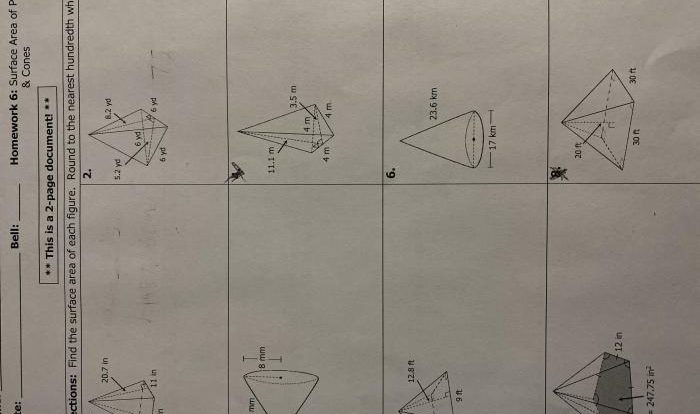Single Variable Calculus 9th Edition introduces readers to the fundamental principles of calculus, providing a comprehensive exploration of its core concepts and their practical applications. This updated edition offers a clear and engaging approach, empowering students with the knowledge and skills necessary to excel in their studies and future careers.
Throughout the text, students will delve into the foundational concepts of limits, continuity, and derivatives, gaining a deep understanding of their significance in real-world scenarios. They will also explore the concept of integrals, discovering their relationship to derivatives and their applications in finding volumes, areas, and work.
Core Concepts of Single Variable Calculus
Single variable calculus is a branch of mathematics that deals with the rate of change of functions with respect to a single variable. It is a fundamental tool used in various fields of science, engineering, economics, and finance.
The core concepts of single variable calculus include limits, continuity, derivatives, and integrals. These concepts provide a framework for understanding how functions behave and how they can be used to model real-world phenomena.
Limits
A limit is a value that a function approaches as the input variable approaches a certain value. Limits are used to determine whether a function is continuous at a particular point and to find the value of the function at that point.
For example, consider the function f(x) = (x^2- 1)/(x – 1) . As xapproaches 1, the value of f(x)approaches 2. This is because the numerator of the function approaches 0 as xapproaches 1, and the denominator approaches 0 as xapproaches 1. Therefore, the limit of f(x)as xapproaches 1 is 2.
Continuity
A function is continuous at a point if its limit at that point is equal to the value of the function at that point. Continuity is important because it ensures that a function can be graphed without any breaks or jumps.
For example, the function f(x) = x^2is continuous at every point because its limit at any point is equal to the value of the function at that point.
Derivatives
A derivative is a measure of the rate of change of a function. Derivatives are used to find the slope of a function at a particular point, to determine the maximum and minimum values of a function, and to solve optimization problems.
For example, the derivative of the function f(x) = x^2is f'(x) = 2x. This means that the slope of the function at any point xis 2 x.
Applications of Derivatives
Derivatives have a wide range of applications in real-world scenarios, including:
- Finding the velocity and acceleration of an object
- Optimizing the design of a product or process
- Predicting the behavior of a system
- Solving problems in finance and economics
Integral Calculus
Integral calculus is the branch of mathematics that deals with the study of integrals, which are a generalization of the concept of area. Integrals are used to find the area under a curve, the volume of a solid, and the work done by a force over a distance.
The concept of integrals is closely related to that of derivatives, and the two operations can be used to solve a wide variety of problems in mathematics and physics.
There are a variety of methods for integrating functions, including substitution, integration by parts, and partial fractions. Each method has its own advantages and disadvantages, and the choice of method depends on the function being integrated. Once a function has been integrated, it can be used to find the area under the curve, the volume of a solid, or the work done by a force over a distance.
Applications of Integrals
Integrals have a wide variety of applications in mathematics and physics. Some of the most common applications include:
- Finding the area under a curve
- Finding the volume of a solid
- Finding the work done by a force over a distance
- Solving differential equations
- Modeling physical phenomena
Applications of Single Variable Calculus: Single Variable Calculus 9th Edition

Calculus is a powerful mathematical tool that has numerous applications in various fields, including physics, engineering, and economics. It allows us to model and solve problems involving continuous change, rates of change, and optimization.
Physics
Calculus is widely used in physics to describe and analyze motion, forces, and energy. It helps physicists understand concepts such as velocity, acceleration, and trajectory. For instance, by taking the derivative of a position function, we can obtain the velocity function, and by taking the derivative of the velocity function, we can obtain the acceleration function.
This knowledge is essential for studying projectile motion, orbital mechanics, and many other physical phenomena.
Engineering
Calculus plays a crucial role in engineering disciplines, such as civil, mechanical, and electrical engineering. It enables engineers to analyze and design structures, machines, and electrical circuits. For example, in civil engineering, calculus is used to determine the optimal shape of a bridge to withstand specific loads.
In mechanical engineering, calculus is used to calculate the forces and stresses on a machine component.
Economics
Calculus is extensively used in economics to model and analyze economic behavior, market trends, and optimization problems. It helps economists understand concepts such as marginal utility, elasticity, and consumer surplus. For instance, by taking the derivative of a utility function, we can obtain the marginal utility function, which represents the additional satisfaction gained from consuming one more unit of a good.
This information is essential for businesses to make decisions about pricing and production.
Advanced Topics in Single Variable Calculus

Advanced topics in single variable calculus extend the concepts and techniques developed in the foundational courses. These advanced topics introduce new mathematical tools and concepts that allow for the study of more complex problems and phenomena.
Sequences and Series
Sequences and series are fundamental concepts in advanced calculus. A sequence is an ordered list of numbers, while a series is the sum of the terms of a sequence. The convergence and divergence of sequences and series are important topics in calculus, as they determine whether or not a sequence or series approaches a limit.
Differential Equations
Differential equations are equations that involve derivatives of unknown functions. They are used to model a wide range of phenomena, from the motion of objects to the growth of populations. The methods for solving differential equations vary depending on the type of equation, but some common methods include separation of variables, integration, and using integrating factors.
Pedagogical Features of the 9th Edition
The 9th edition of Single Variable Calculus offers significant improvements and updates to enhance the learning experience for students.
New pedagogical tools and resources have been introduced to foster deeper understanding and engagement with the material.
Revised Content and Organization, Single variable calculus 9th edition
The revised content and organization of the textbook improve the logical flow of concepts and facilitate a smoother progression through the material.
- Key concepts are presented in a clear and concise manner, building a strong foundation for subsequent chapters.
- New sections have been added to address emerging topics and applications in calculus.
- Examples and exercises have been carefully selected to reinforce concepts and challenge students’ understanding.
New Pedagogical Tools and Resources
The 9th edition incorporates innovative pedagogical tools and resources to enhance student learning:
- Interactive online exercises provide immediate feedback and reinforce concepts.
- Video lectures and animations offer visual explanations of complex topics.
- A comprehensive study guide provides additional practice and support.
Enhanced Learning Experience
The combination of revised content, new pedagogical tools, and a student-centered approach creates an enhanced learning experience that promotes:
- Deeper understanding of calculus concepts.
- Improved problem-solving skills.
- Increased confidence in applying calculus to real-world problems.
Helpful Answers
What are the key features of Single Variable Calculus 9th Edition?
Single Variable Calculus 9th Edition offers a range of pedagogical features to enhance the learning experience, including updated content, new examples, and interactive exercises.
How does Single Variable Calculus 9th Edition help students apply calculus in real-world scenarios?
The text provides numerous examples and applications that demonstrate how calculus is used to solve problems in fields such as physics, engineering, and economics.
What are the prerequisites for studying Single Variable Calculus 9th Edition?
A solid foundation in algebra and trigonometry is recommended before embarking on a study of single variable calculus.

